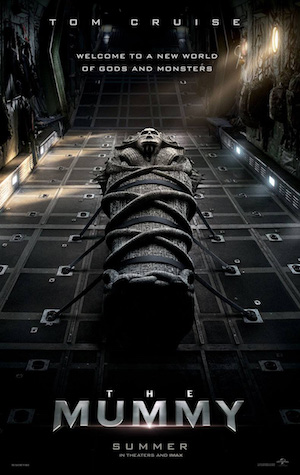 FILM
FILM In Which We Remain By Jamie Foxx's Side At All Times
 Friday, June 30, 2017 at 10:00AM
Friday, June 30, 2017 at 10:00AM 
Real Blaxploitation
by ETHAN PETERSON
Baby Driver
dir. Edgar Wright
113 minutes
 No film has ever represented the abduction of black culture into dominant white paradigms so much as Baby Driver; few films have ever been so brazen as to celebrate the same. When Baby (Ansel Elgort) meets Leon (Jamie Foxx) in the basement hideout of robbers intent on going after the U.S. Postal Service for some reason, Leon is immediately suspicious of a young white man who purports to embrace crime. (It turns out, subsequently, that he has a similar distrust of all such white people.) Leon implies, not so subtly, that he cannot understand why someone who is white and lives in the American South would ever resort to crime. What is the point of pissing in Paradise?
No film has ever represented the abduction of black culture into dominant white paradigms so much as Baby Driver; few films have ever been so brazen as to celebrate the same. When Baby (Ansel Elgort) meets Leon (Jamie Foxx) in the basement hideout of robbers intent on going after the U.S. Postal Service for some reason, Leon is immediately suspicious of a young white man who purports to embrace crime. (It turns out, subsequently, that he has a similar distrust of all such white people.) Leon implies, not so subtly, that he cannot understand why someone who is white and lives in the American South would ever resort to crime. What is the point of pissing in Paradise?
Edgar Wright, the stylish British director who frequently feuds with clueless studio executives, writes a marvelous scene to illustrate this misunderstanding. Baby is listening to "Tequila!" a 1957 song by the son of Mexican immigrants who was forced to sign away his royalties to the tune. That music, constructed by a person of color for the pleasure of all, is overheard by Leon. He instantly bristles at the appropriation. "I have enough to listen to with the voices in my head," he informs the crew's driver, who mainlines tracks in order to soothe his tinnitus.

The suspicion that Leon focuses on this young Atlanta resident is justified later on. Despite the fact that Leon never threatens him with violence or even speaks to him in anything like a raised tone, Baby wishes him harm, and ends up acting on his hatred in Baby Driver's most mystifying scene. Baby never even thanks Leon for saving his life when a militant witness to a bank robbery chases them from the scene. This is the hero of Baby Driver – a white man with no idea how good he has it.

In Baby's private moments, he fantasizes about his dead mother, who drove into the back of a semi because she was distracted. Baby sees a local Atlanta waitress named Debora (Lily James), who is five years his elder, working in the same restaurant his mother did before her untimely demise. He immediately begins imagining Debora in the role of his mother in similar "memories." This transference is not even subtle, and it suggests that Wright is consciously or unconsciously as disgusted by the life choices of his main character as we are. For her part, Debora has no qualms about pursuing a relationship with a wealthy criminal.

In order to humanize this thief, Edgar Wright has him live a double life as the kindly caretaker of his foster father (C.J. Jones). You see, we might feasibly theorize, it is fine that Baby derives his own identity from music composed by others, since he is a caring son to this mute, wheelchair-bound African-American. We never learn how Baby's foster father became mute, or how was ever able to take in an orphan boy in his condition, because Baby Driver is about as interested in the plight of an elderly black man as I am in the plight of an attractive white 23 year old.
The first hour of Baby Driver marches on quite blissfully without a single non-musical moment. Once Wright runs out of licensed music by blacks, Latinos or gays, the film sort of comes to a thudding halt. Attempting to spice up the diegesis is Buddy (Jon Hamm), who has been living as hard as the actor who plays him, sampling the finest cocaine with his wife Monica (Eiza Gonzalez), a former stripper. The two do not really have much in the way of chemistry and spend most of Baby Driver's running time making out gratuitously.

It is Elgort's magnificent performance as the title character that makes Baby Driver possible at all. Wright often obscures or brilliantly covers for the weaknesses of his stars, but outside of Hamm's broad, not-so-splendid performance, the entire cast is well-suited for these flashy roles. Elgort in particular makes every line meaningful and renders his silent moments as enthusiastically as his quiet vehicle operator is able.
Even among this group, Foxx steals the show as the only character in this milieu with any sense. Despite taking on a series of lesser projects that he needed in order to presumably pay escalating debts, Jamie finally seems to be growing into himself as an actor now that he has reached the place we all arrive at eventually: middle age. That Baby Driver consigns Leon to such an ignominious fate means that it misunderstands the events it describes about as thoroughly as this handsome young white fellow ignores his privilege.
Ethan Peterson is the reviews editor of This Recording.













































